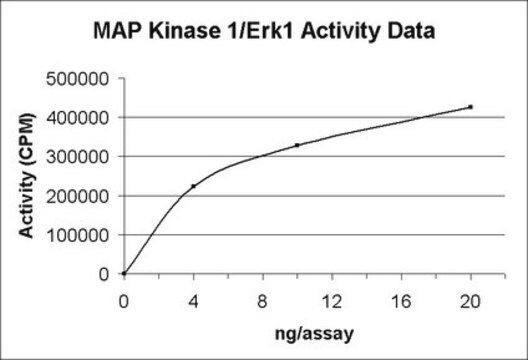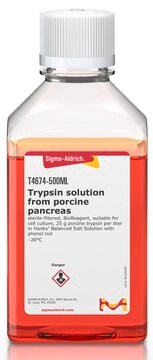E7407
ERK1, active, untagged human
PRECISIO® Kinase, recombinant, expressed in baculovirus infected Sf9 cells, ≥70% (SDS-PAGE), buffered aqueous glycerol solution
Synonym(s):
MAPK3, P44ERK1, P44MAPK, PRKM3
About This Item
Recommended Products
recombinant
expressed in baculovirus infected Sf9 cells
Quality Level
product line
PRECISIO® Kinase
Assay
≥70% (SDS-PAGE)
form
buffered aqueous glycerol solution
specific activity
329-445 nmol/min·mg
mol wt
~44 kDa
UniProt accession no.
shipped in
dry ice
storage temp.
−70°C
Gene Information
human ... MAPK3(5595)
General description
Biochem/physiol Actions
Physical form
Legal Information
Storage Class Code
10 - Combustible liquids
WGK
WGK 1
Flash Point(F)
Not applicable
Flash Point(C)
Not applicable
Personal Protective Equipment
Certificates of Analysis (COA)
Search for Certificates of Analysis (COA) by entering the products Lot/Batch Number. Lot and Batch Numbers can be found on a product’s label following the words ‘Lot’ or ‘Batch’.
Already Own This Product?
Find documentation for the products that you have recently purchased in the Document Library.
Articles
Alzheimer's disease (AD) is the most common cause of dementia in the elderly and is characterized by gradual loss of cognitive functions.
Lipid Induced Insulin Resistance
Our team of scientists has experience in all areas of research including Life Science, Material Science, Chemical Synthesis, Chromatography, Analytical and many others.
Contact Technical Service



